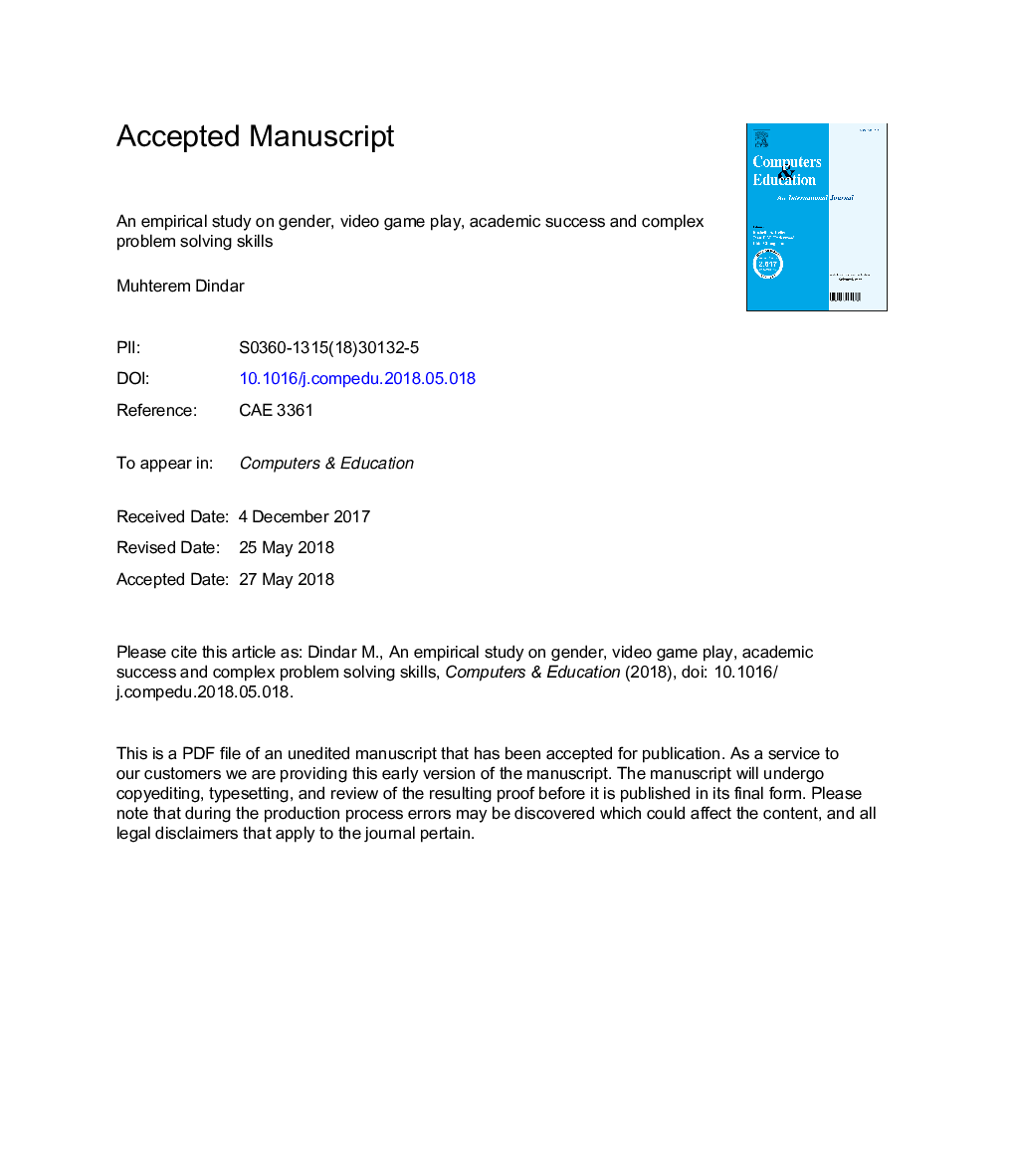| Article ID | Journal | Published Year | Pages | File Type |
|---|---|---|---|---|
| 6834596 | Computers & Education | 2018 | 48 Pages |
Abstract
This study investigated the video gaming behaviors of 479 high school students with respect to gender-based differences, as well as the relationship between video gaming, academic success and Complex Problem Solving skills (CPS). Video gaming was measured under the gaming experience, gaming time, gaming frequency, perceived gaming skills, playing alone vs. playing with a team, and game genre dimensions. The Programme for International Student Assessment (PISA) 2012 Creative Problem Solving test was utilized to measure CPS. Findings showed that the sampled males had more experience and skills in video gaming and spent more time on video games than their female counterparts. On the other hand, it emerged that the females actually played video games more often than the males. No relationship of practical significance was found between any of the video gaming variables investigated in the study and CPS or academic success. The current findings contribute to the limited empirical evidence on the relationship between video gaming and CPS, and demonstrate that the transferal of video gaming skills to real-life problem solving might not be as obvious as is claimed in the literature.
Related Topics
Social Sciences and Humanities
Social Sciences
Education
Authors
Muhterem Dindar,
